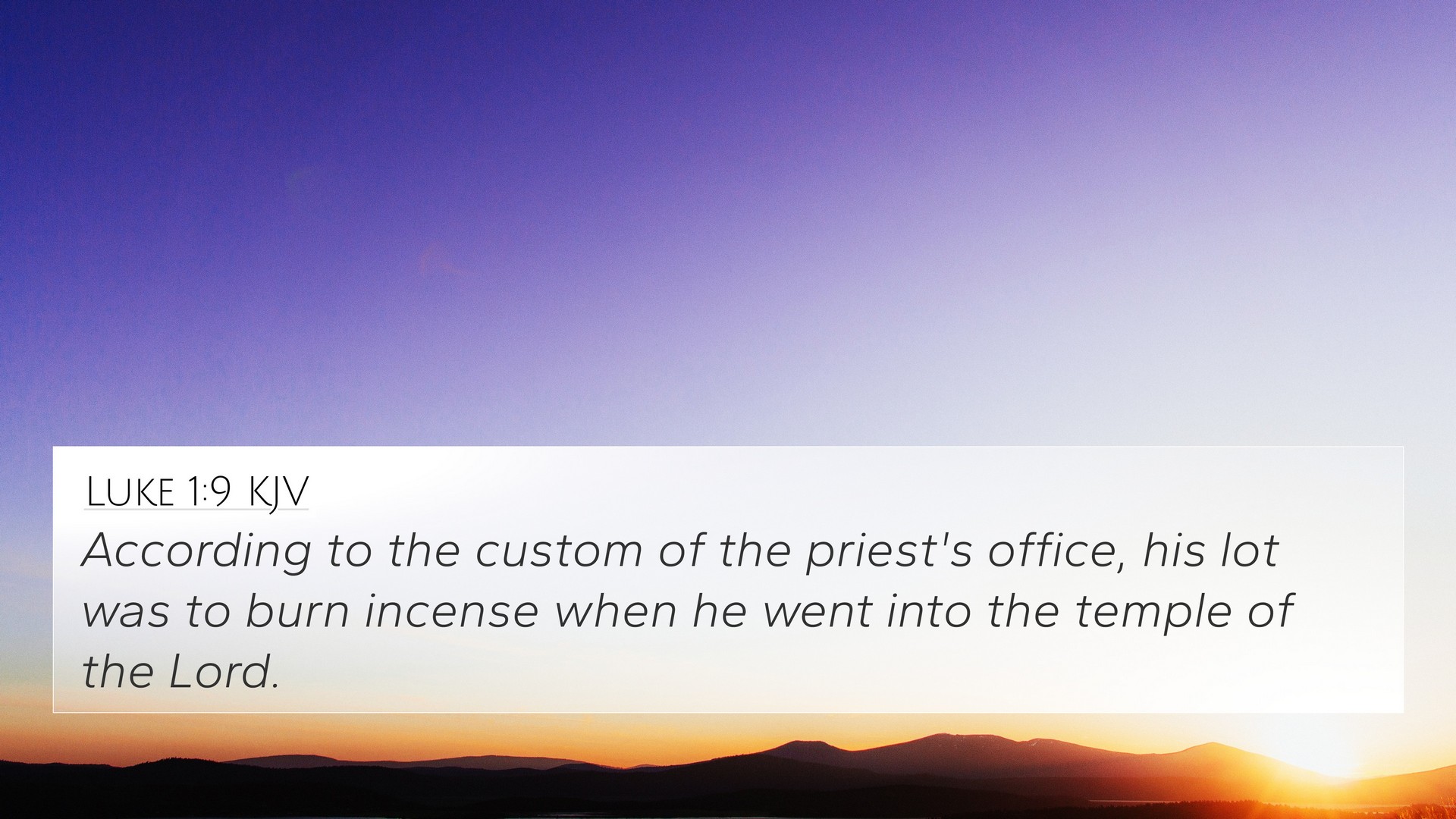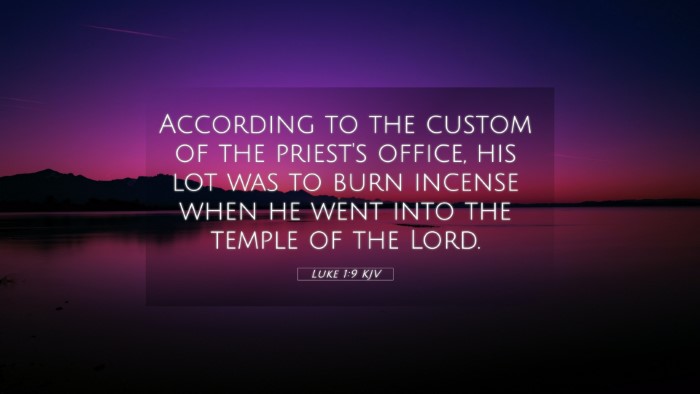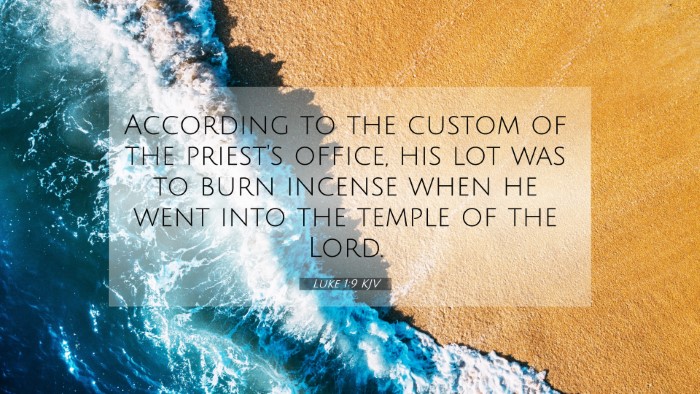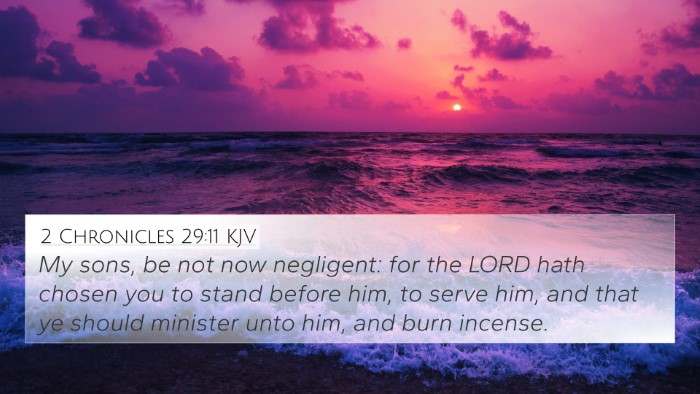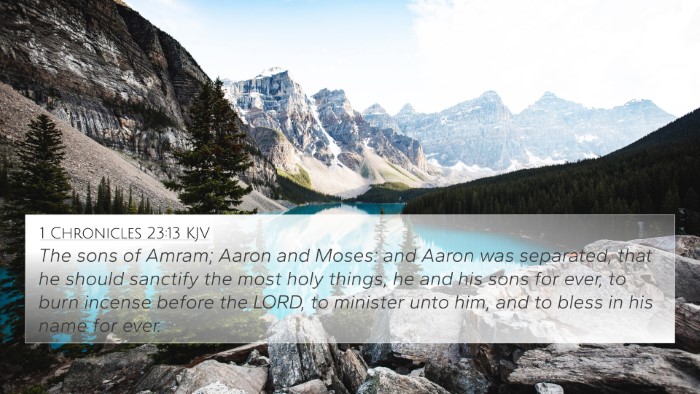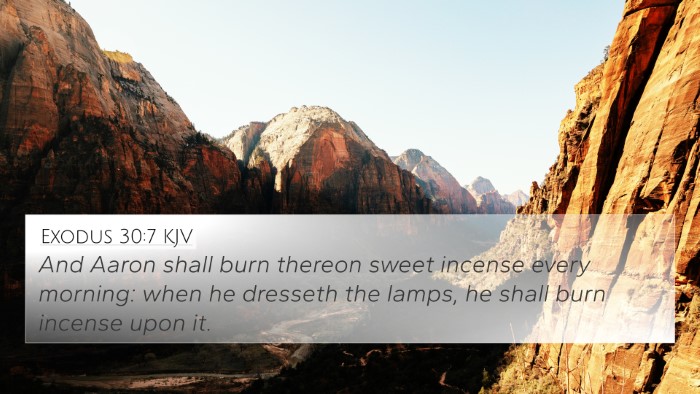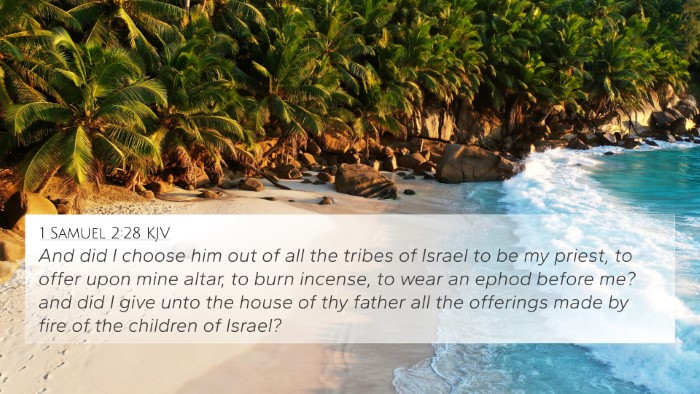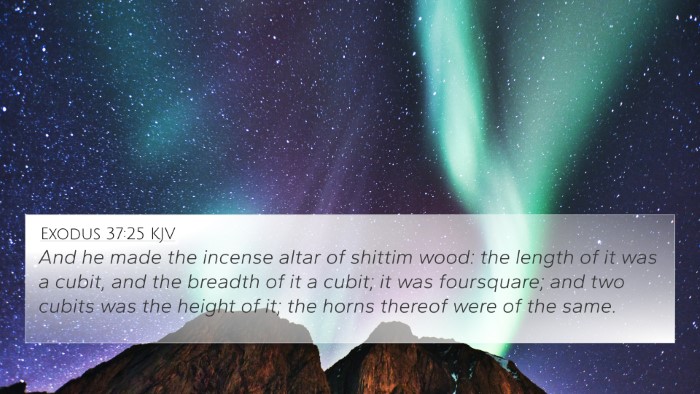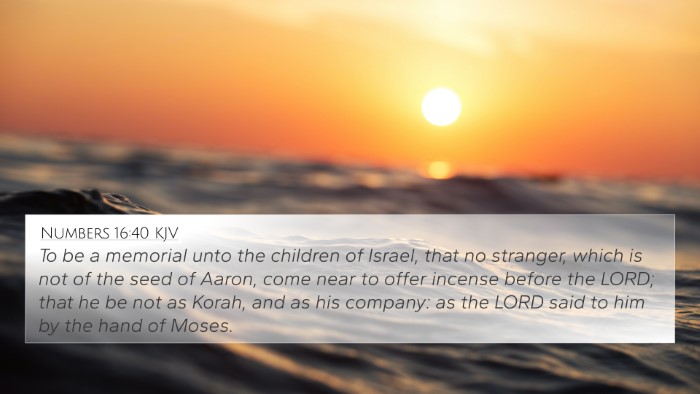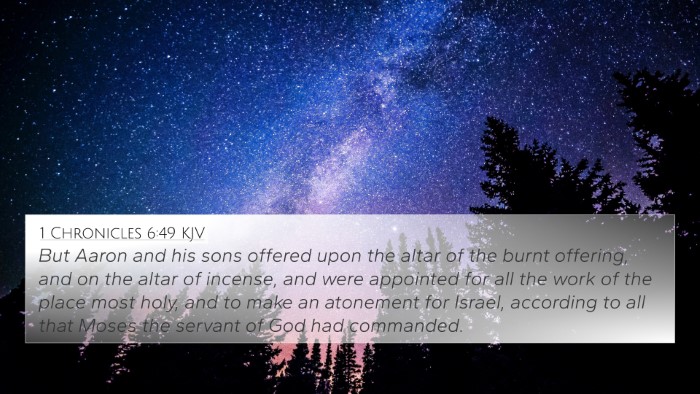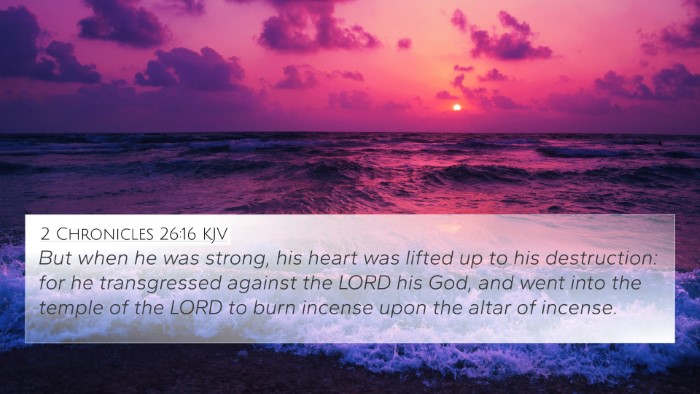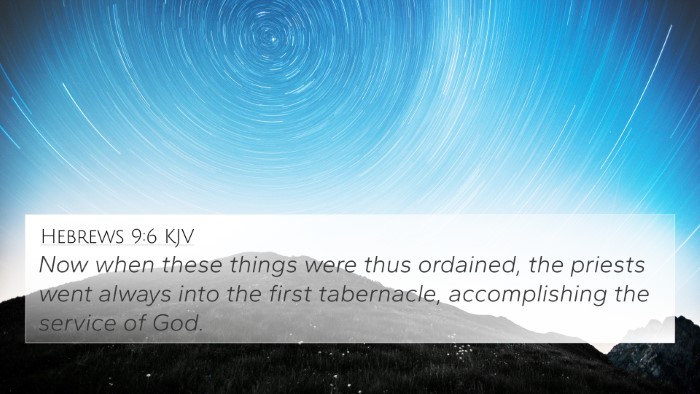Understanding Luke 1:9
Luke 1:9 states: "According to the custom of the priest's office, his lot was to burn incense when he went into the temple of the Lord."
This verse provides a glimpse into the duties of the priests in the Temple. The phrase "according to the custom of the priest's office" indicates that Zechariah, the priest mentioned in this context, was performing his appointed role. It serves as a significant introduction to the later events surrounding the announcement of John the Baptist's birth.
Commentary Insights
Matthew Henry's Commentary
According to Matthew Henry, this passage highlights the divine order in the priestly system and its connection to worship. The act of burning incense represents a vital part of priestly duty, symbolizing the prayers of the people ascending to God. Henry notes the importance of this service, depicting it as a privilege and responsibility that draws forth God's attention.
Albert Barnes' Notes
Albert Barnes emphasizes the significance of the priest's lot in burning incense. He explains that this duty was only performed once in a lifetime for many priests, making it a sacred and rare opportunity to serve in this manner. To Barnes, this moment illustrates God's sovereignty in selecting Zechariah for this honor, preparing him for the greater revelation that was to follow regarding his son, John the Baptist.
Adam Clarke's Commentary
Adam Clarke discusses the implications of this verse within the broader narrative of the Gospel. He points out how the burning of incense represents worship and intercession, linking it to the themes of mediation in the New Testament. Clarke underlines that the encounter that follows in this chapter is directly tied to Zechariah's faithful execution of his duties as a priest, illustrating the importance of obedience and readiness to hear God's message.
Bible Verse Cross-References
- Exodus 30:7-8: Instructions for burning incense as part of priestly duties.
- 1 Chronicles 24:5: Reference to the divisions of the priests and their offices.
- Luke 1:10: The gathering of the people during incense burning, showing communal prayer.
- Revelation 5:8: Symbol of the prayers of the saints ascending like incense.
- Hebrews 5:1: The role of a priest to offer gifts and sacrifices for the people.
- Malachi 1:11: The offering of incense is a form of worship that is pleasing to God.
- Acts 3:1: The continuous role of prayer in the life of believers, reminiscent of Zechariah's duty.
Thematic Bible Verse Connections
Luke 1:9 reflects themes found throughout scripture regarding the nature of worship, duty, and divine appointment. Exploring these connections and the links between Old and New Testament practices illuminates how God utilizes faithful individuals to fulfill His purposes.
Comparative Bible Verse Analysis
The examination of this verse alongside others like Exodus 30:7-8 (where God commands the burning of incense) and Revelation 5:8 (linking the prayers of believers to incense) showcases a lineage of worship practices established throughout the Bible.
How to Use Bible Cross-References
Using cross-references helps believers deepen their understanding. Tools for Bible cross-referencing, such as a Bible concordance or Bible cross-reference guide, can assist in identifying related scriptures, enriching personal study and sermon preparation.
Inter-Biblical Dialogue
The interconnections between verses provide an opportunity for reflection on God's coherence in His message throughout scripture. Understanding how the duties of Zechariah in Luke 1 parallel Old Testament practices enhances our appreciation for the continuity of God's redemptive plan.
Conclusion
Luke 1:9 serves as an essential transition point within the Gospel of Luke, unraveling a narrative steeped in significance and preparing the heart for the revelation of John the Baptist's role. Engaging with the verse through various commentaries and cross-references enables a richer, more nuanced understanding of the biblical text.
